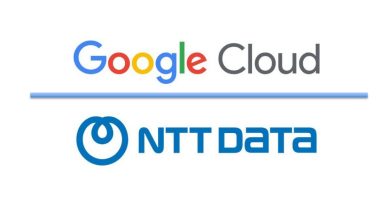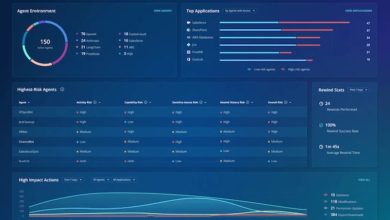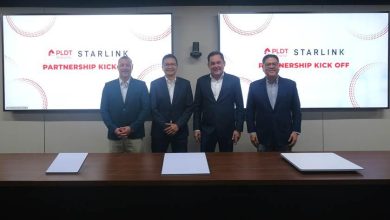Agentforce World Tour Singapore Highlights Organisational Benefits of Digital Labour
Latest Salesforce Research Reveals That APAC HR Leaders Plan to Redeploy 21% of Their Workforce as Agentic AI Adoption Expected to Grow 450% by 2027
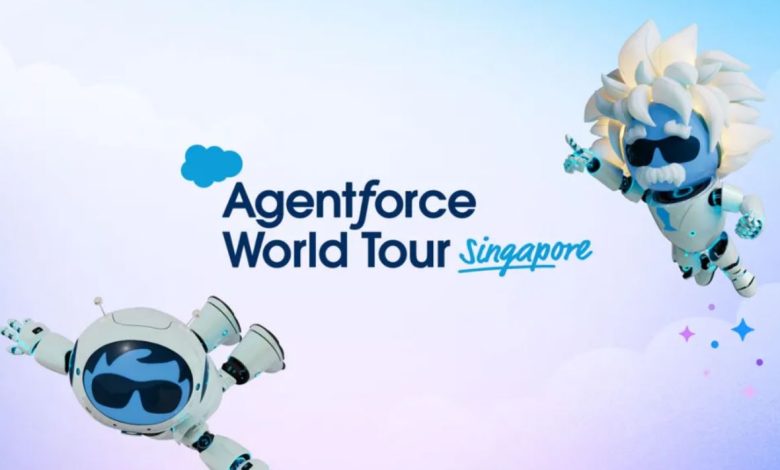
Salesforce’s latest research, released at Agentforce World Tour Singapore recently, has revealed that digital labour is not just a trend—it is a business strategy revolution. With Artificial Intelligence AI agent adoption expected to jump 450% over the next two years, leading to a productivity gain of 37%, HR leaders are reimagining the way organisations structure and skill their workforce. The findings reveal that CHROs expect to redeploy 21% of their workforce as their organisations implement and embrace digital labour.
The study also highlighted a growing focus on AI reskilling programs. More than four in five HR leaders in APAC are or are planning to reskill their workers to be more competitive in a market shaped by AI agents. Most of these leaders also agree that soft skills—like relationship building and collaboration—will be even more critical as humans work alongside agents.
To support this workforce transformation and build an Agentforce-ready workforce in ASEAN, Salesforce today announced plans to train 7,500 Agentblazer Champions in 2025. Agentblazer Champions learn in-demand AI skills and hands-on experience building autonomous agents to create a digital workforce. Training will be conducted through partnerships with government agencies, workforce development partners, channel partners, Institutes of Higher Learning across the region and on Trailhead, Salesforce’s free online learning platform.
Earlier this year, Salesforce pledged USD $1 billion over five years to back Singapore‘s digital ambitions under the National AI Strategy 2.0. The investment aims to accelerate local adoption of Agentforce, equipping Singapore firms with a limitless digital workforce to unlock new levels of productivity, innovation, and growth.
“The rise of agentic AI represents a pivotal moment for ASEAN businesses, offering not just efficiency gains but a fundamental reimagining of organisational capacity. For Singapore organisations struggling to fill critical labour gaps amid slowing labour force growth, Agentforce offers a unified platform for enterprises to unlock a new labour model, allowing them to boost productivity, reduce costs and drive new levels of innovation and growth,” said Sujith Abraham, Senior Vice President and General Manager, Salesforce ASEAN.
Business Leaders Share Perspectives on Agentic Era at Agentforce World Tour Singapore
At the Agentforce World Tour Singapore, Panasonic shared how the company is using Agentforce alongside their service team to triage customer requests, recommend solutions and deliver more efficient customer support. Speakers from Grab, FairPrice Group, Kaplan, and Singapore Airlines also shared their experiences leveraging Salesforce’s deeply unified platform of solutions.
Speaking during a panel discussion at the event, Mushi Luke, Chief Intelligence Officer at HEPMIL Media Group shared where he sees AI driving the most impact for the regional content and creator management company, which operates across Singapore, Malaysia, the Philippines, Indonesia, Vietnam, and Thailand.
“AI can drive the most impact in processes that are humanly impossible to solve; at scale, at high availability, 24/7. As the creator economy continues its rapid growth, with an increasing number of creators entering the space and the complexity of business operations generating a significant volume of administrative tasks, the adoption of Agentforce looks promising in scaling up to meet these evolving business needs”, said Luke. “As we prepare to integrate agentic workflows into our operations, we believe it’s equally important to prepare our employees well. At HEPMIL, that means not only investing in Software and Hardware, but also in Heartware—cultivating the right mindsets and a culture of continuous experimentation–and Brainware–upskilling and reskilling our teams to adopt and use modern technologies effectively.”
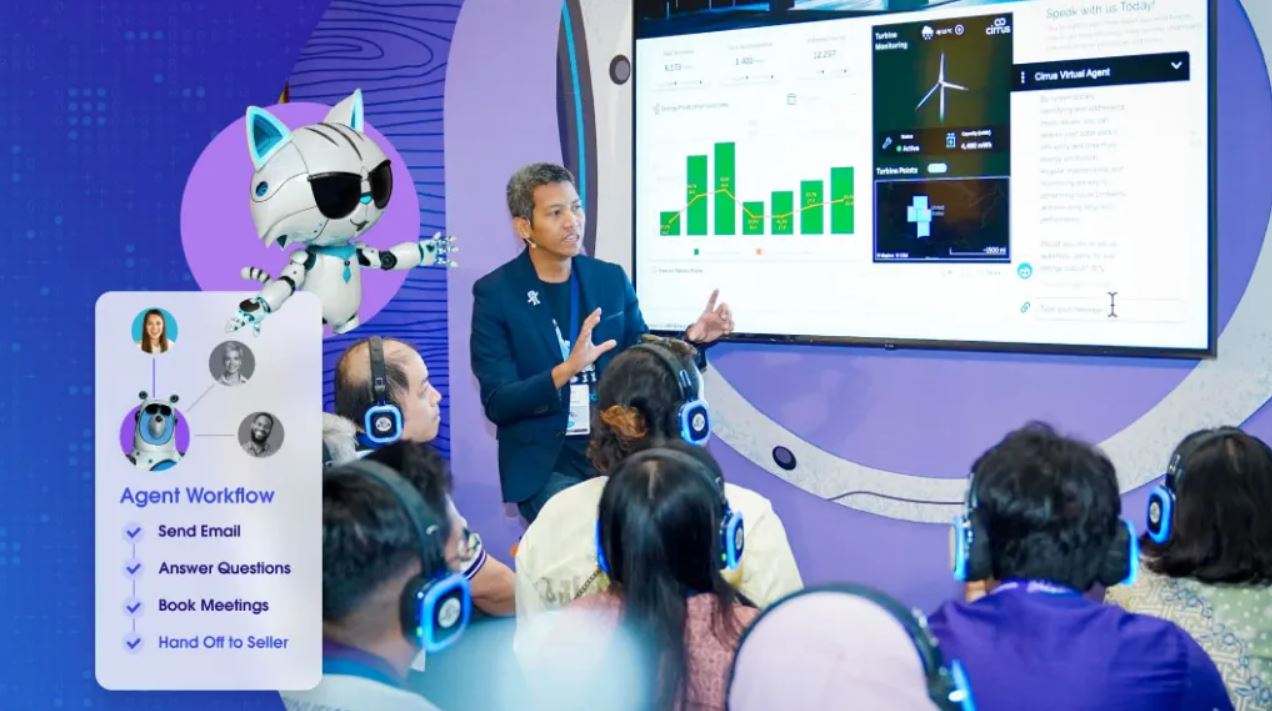
Nicholas Lee, Chair at industry association SGTech, said: “The rapid rise of Agentic AI, as highlighted by Salesforce, marks a turning point for Singapore. It offers a powerful opportunity to address our labour constraints and boost productivity. SGTech believes proactive upskilling is crucial for our businesses to leverage and complement this technology. We are committed to strengthening private-public partnerships and equipping our members with the tools and talent to stay competitive globally. Ultimately, we want to ensure AI empowers our workforce and propels Singapore’s digital future.”
Shui-Min Tan, Chief Information Technology Officer at National University of Singapore said, “NUS’ AI journey began in 2018 and has since evolved into a university-wide transformation with the launch of AI-Know, giving staff access to a whole suite of AI tools at their fingertips. This has boosted productivity, improved decision-making, and empowered customisation of our own AI tools. What excites us most is the cultural shift underway. We remain focused on helping the NUS community embrace AI meaningfully, with the right tools, mindset, and skills to thrive in this new era!”
Key Research Findings Shared at Agentforce
Welcoming over 2,000 registered customers and partners, Agentforce World Tour Singapore featured inspiring keynotes, a campground with live demos and a hands-on agent building experience, and innovative product and industry-specific sessions to help organisations succeed in the agentic AI era.
Key research findings shared at the event include:
APAC HR leaders believe digital labour is the future and its integration is critical to their role.
-
- 83% believe that within five years, most workforces will have humans and AI agents/digital labour working together.
- 93% of CHROs say that integrating digital labour alongside their existing workforce will be a critical part of their job.
- CHROs project a 450% growth in agent adoption within their organisations by 2027 (from 10% adoption today to 55% two years from now).
- Once agentic AI is fully implemented, CHROs expect an average employee productivity gain of 37% and a 25% reduction in labour costs – the equivalent to USD $14,558 per employee based on OECD (Organisation for Economic Co-operation and Development) average annual wages.
APAC CHROs plan to reskill and redeploy their employees to work alongside agents.
-
- 83% of CHROs believe AI agents/digital labour will transform their organisational structure.
- 89% of CHROs believe AI agents/digital labour will empower them to reassign employees to new, more relevant roles.
- They expect 60% of their workforce will remain in their current roles as they work alongside digital labour.
- They anticipate redeploying over one-fifth (21%) of the workforce to new roles or teams.
- 84% of CHROs believe redeployment is the more cost-effective approach compared to hiring outside the business for new roles.
- 86% of CHROs are either already reskilling (14%) or plan to reskill (72%) employees for roles with better future opportunities.
With 90% of businesses yet to embrace agentic AI, APAC CHROs direct near-term efforts toward AI implementation—including IT and research and development.
-
- CHROs anticipate IT, research and development (R&D), and sales teams will grow as their business begins to adopt AI agents.
- CHROs plan to reassign employees to technical roles, like data scientists or technical architects, in the near term.
- CHROs believe that AI literacy is the number one skill workers need as businesses move into the agentic economy.
As businesses implement digital labour strategies, APAC CHROs believe soft skills and relationship-building roles will become more valuable.
-
- 80% of CHROs say AI agents/digital labour will increase the need for soft skills at their organisation.
- CHROs also plan to reassign employees to relationship-building roles (#2), like partnerships and account management and say creative thinking and human-AI agent collaboration will be valuable in the agentic economy.
- CHROs anticipate teams such as customer service, operations and finance teams will decrease in size and see some redeployment with the augmentation and efficiencies of agents.
Despite the urgency of digital labour, many HR chiefs are still in early planning phases with preparing their workforce.
- Just 10% of CHROs say their organisation has fully implemented agentic AI.
- 41% say their employees remain unaware of how AI agents will impact their work.
AI agents drive opportunity for early-career workers to step into managerial roles.
-
- 67% of CHROs say digital labour will increase early career prospects/growth.
- Majority (59%) say the use of AI agents/digital labour will increase the need for people in leadership roles.
- Over 6 in 10 (62%) CHROs say within five years, most or all human employees will have an AI agent reporting to them.

